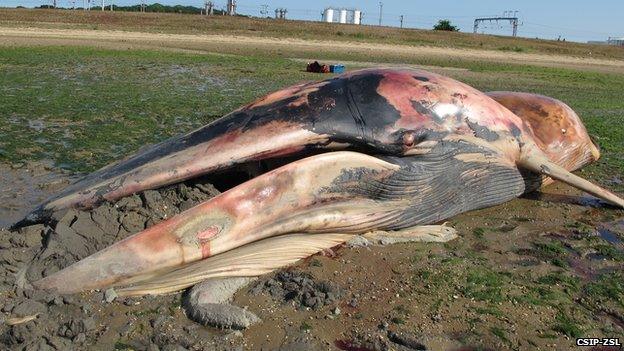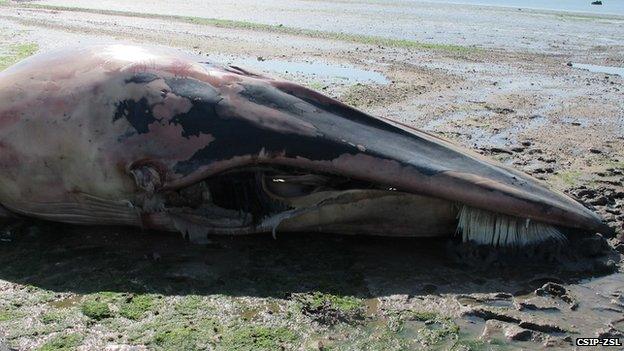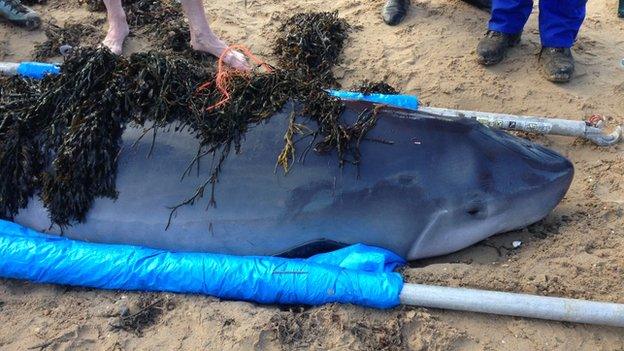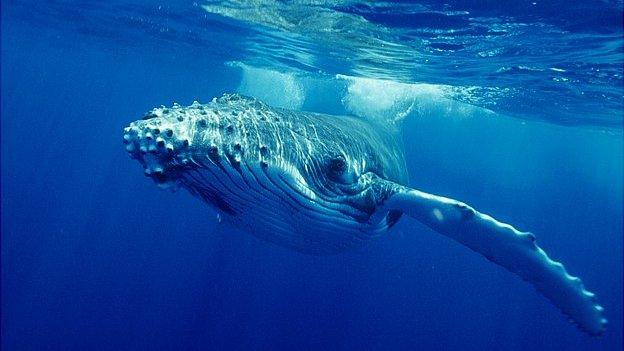Dead whale carcass near Harwich to be left to decompose
- Published

The whale was dragged in on the front of a cargo vessel, a strandings investigator said
A dead whale thought to have been hit by a ship is to be left to decompose off the Essex coast, experts have said.
Two thirds of the fin whale's carcass, measuring 10m (33ft), was found on RSPB land near Harwich.
It was dragged in on the front of a cargo vessel but experts believe it may have been hit by another ship.
The decision has been taken between scientists and landowners to leave the remains in place as it is not considered a public health hazard.
The body was found last week on private land with no public access, said Rick Vonk, site manager of the RSPB Stour Estuary site.
"We're scratching our heads as to how this happened," he told the BBC.
"Fin whales are a very northerly species. We don't know what it was doing to get hit, presumably by a container vessel.
"It's unfortunate this has happened - we like to see live whales rather than dead ones," he added.

Fin whale facts

The whale carcass measures about 10m (33ft)
The fin whale is the second largest mammal in the world, after the blue whale
The species is nicknamed "razorback" because of a distinct ridge behind the dorsal fin
The average weight of the fin whale is almost 80 tonnes and they are usually 20 to 24 metres (65 to 80ft) in length
A fin whale's lower right jaw is bright white, while its lower left jaw is black
They can reach speeds of 30mph (37kmph)
Source: WWF, external

Rob Deaville, project manager of the Cetacean Strandings Investigation Programme (CSIP), was called out to examine the whale.
"Leaving it in place was the most pragmatic decision in this case, as trying to remove it would damage the local habitat," he said.
Mr Deaville said fin whales were prone to ship strikes, but his project had only been involved in two other cases of fin whales brought into harbour on the front of vessels over the last 25 years.
He said there are about 600 strandings in the UK each year, of which two or three are fin whales.
- Published20 November 2014

- Published4 November 2013
